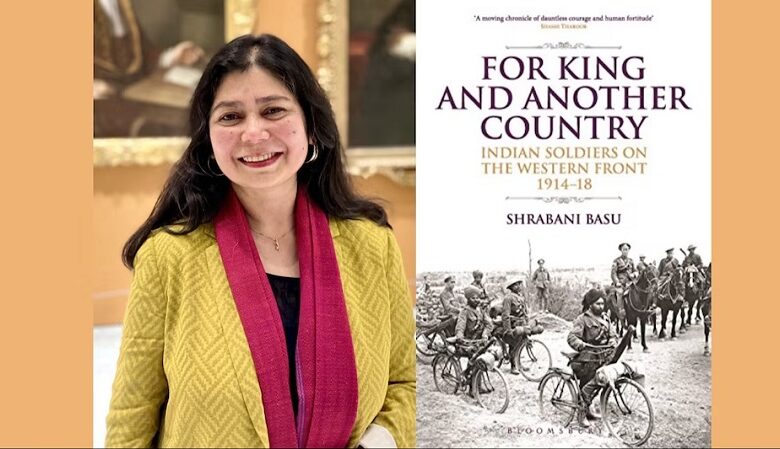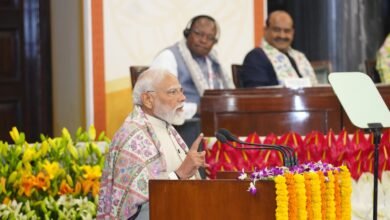Indian Origin Author Shrabani Basu Honored with Honorary Doctorate by University of London

News Mania desk/Agnibeena Ghosh/3rd May 2024
Shrabani Basu, a Kolkata-born historian and author, has received an honorary doctorate from the University of London in recognition of her profound impact on the realms of literature and the study of shared British-Indian history. Basu, currently based in London, has garnered widespread acclaim for her bestselling biographical works, notably including ‘Spy Princess: The Life of Noor Inayat Khan’ and ‘Victoria and Abdul: The True Story of the Queen’s Closest Confidant’, the latter inspiring an Oscar-nominated film featuring Dame Judi Dench. Her exceptional storytelling and rigorous research have solidified her reputation as a leading figure in historical narrative.
The University of London conferred upon Basu the esteemed Degree of Doctor of Literature during a prestigious graduation ceremony held on April 30. The presentation of the honorary degree was carried out by the esteemed Chancellor of the University, Princess Anne, also recognized as the Princess Royal and sister of King Charles III. This honor acknowledges Basu’s outstanding achievements within the literary domain.
Reflecting on the significance of the moment, Dr.Basu expressed gratitude for the University’s support in commemorating World War II heroine Noor Inayat Khan. She recalled the university’s pivotal role in granting permission for the construction of a memorial in Gordon Square in 2009, which was later unveiled by Her Royal Highness, the Princess Royal, in 2012. This memorial now serves as a poignant reminder of Khan’s bravery and resilience, attracting visitors from around the world and ensuring her story is widely known and respected.
During her address at the ceremony, Basu recounted her journey from India to the UK in the late 1980s, transitioning from journalism to authorship and encountering countless hidden narratives that would shape her literary endeavors. She emphasized the privilege of shedding light on the contributions of Indians during the First and Second World Wars, a topic often overlooked in mainstream historical discourse. Through her work, Basu strives to provide the South Asian diaspora in Britain with a sense of connection and belonging by uncovering and celebrating their ancestors’ sacrifices and achievements.
In addition to her literary pursuits, Basu underscored the importance of teaching the history of the British Empire in UK schools as a means of fostering mutual understanding and appreciation for diverse cultural narratives. Contrary to viewing the Empire’s legacy as divisive, she sees it as an opportunity to unite people through a shared exploration of their intertwined histories, thereby shaping a more inclusive and enlightened future.
In recognition of her multifaceted contributions to the understanding of India and the British Empire, Pro Vice-Chancellor Professor Mary Stiasny lauded Basu as a “thought leader” whose work transcends conventional historical narratives. Stiasny highlighted Basu’s unique approach, which blends journalistic inquiry with historical scholarship, to uncover untold stories and amplify marginalized voices within the broader narrative of British colonialism in India.
Through her tireless dedication to historical research and storytelling, ShrabaniBasu has emerged as a pioneering figure in the field of British-Indian history and literature. Her remarkable body of work not only enriches our understanding of the past but also serves as a testament to the enduring power of storytelling in illuminating hidden truths and fostering empathy across cultures and generations.






